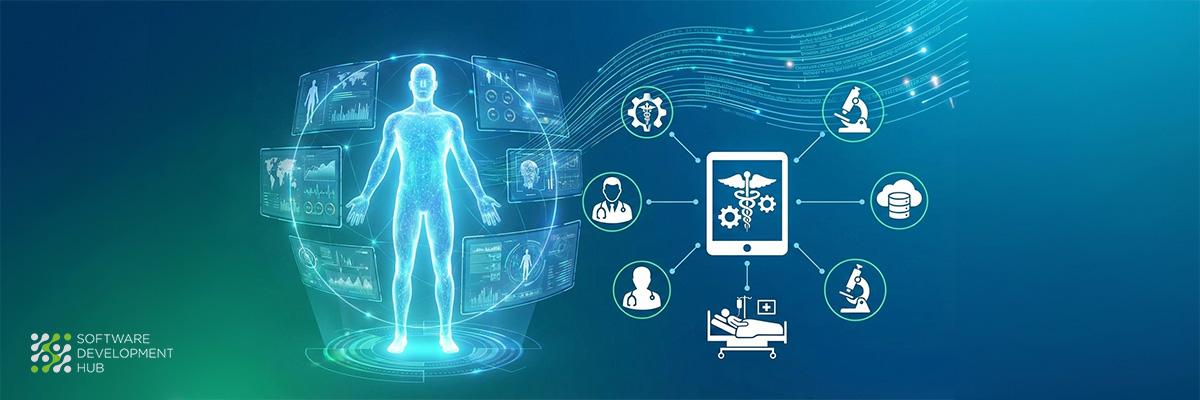Exploring Innovative AI Use Cases in Hospitality
Working in the hospitality industry is a constant struggle with competitors for customer trust and solving many challenges, such as the need to personalize services, communication with a variety of guests, and the growing need for better management of operations in an environment where demand is dynamic. The introduction of artificial intelligence technology has become promising: on the horizon, there is a prospect of quick adaptation to customer needs and quick solutions of emerging problems through automation, decision-making optimization, and increased work efficiency. Analyzing a large amount of data, predicting trends, and making rational decisions are the undoubted advantages that an entrepreneur in the hotel business can take advantage of. In this article, we will examine ways of AI applications in the hospitality industry.
AI use cases in hospitality
There are many options for using Artificial Intelligence (AI) in the hospitality industry, and here are the most common ones:
- сhatbots for customer support allow you to establish effective interaction with people. As a rule, in most cases, chatbots provide information about hotel services, bookings, and answers to the most common questions;
- virtual assistants for personalized services - a technology integrated to a smart speaker or mobile application. Virtual assistants will inform about interesting places nearby, restaurants, and popular routes. In other words, this function contributes to satisfying the needs of the guests and making their stay impeccable;
- language translation - an option for communicating with guests with a language barrier, which gives a feeling of comfort even among people from other countries;
- guest reviews and sentiment analysis. Such chatbots collect feedback from customers and analyze the general mood. The information is used by the hotel management to evaluate their work and understand what is to be done to maximize guest satisfaction;
- upselling and cross-selling. Based on the analysis of wishes and interests of the guests, they may be offered additional personalized services - a reservation at a restaurant, a room of a different category, a trip to the SPA center, etc.;
- optimization of work processes. Chatbots allow you to customize the execution of tasks within the system by automating routine processes, such as answering customer questions about availability or booking confirmation.
Read also: How AI in Healthcare Is Transforming Industry
Intelligent reservation systems
AI in the hospitality industry has made booking confirmation process much easier. How does AI work in intelligent booking systems?
- Optimization of pricing. Based on the data obtained from the analysis of information about past bookings, customer wishes, and market trends, machine algorithms build realistic pricing strategies. The price per room can change automatically, taking into account seasonality, and demand for rooms, which will help to achieve maximum profitability and occupancy.
- Formation of prices taking into account personal information, and promotions. Based on customer booking data and their behavior, machine technologies select the optimal pricing formats for each individual customer. This way you can win the loyalty of guests and increase the likelihood of booking.
- Distribution and availability of rooms. As the AI monitors booking records and changes in demand, it automatically distributes available rooms so that the largest number of rooms are filled. Thus, the inventory of the premises is used to the maximum, and the minimum number of rooms is empty.
- Up-sells and cross-sells are offered to clients based on analyzed information about the class of rooms the client prefers to book, whether he visits spa centers and hotel restaurants, etc. A personalized approach improves the service and increases the average bill.
- Integration with distribution channels. The interaction of intelligent systems with distribution channels and travel agencies to analyze booking trends, prices from competitors, and demand in the market will help manage inventory, namely, change the availability of rooms, and adjust prices on different resources.
- Forecast and analysis of demand. Monitoring data and historical trends provides understanding of what demand will be in the near and far future, and also helps to make the right decisions.
Read also: AI-Powered Application Development Guide for Business Owners
Personalized guest experiences
A personalized approach to guest service is possible due to analysis of information about places where the guest has already been, what (s)he prefers, their reviews, and their activity on social networks. Based on the data, machine algorithms select and combine optimal conditions for staying.
The basis of an individual approach is personal recommendations regarding services and customer experiences. For example, a guest can be offered a trip to a spa center or procedures in a beauty parlor, which, with an appropriate level of service, enhances customer loyalty to the company.
Another important area for application is customizing conditions of stay in the room, for example, the hardness of pillows, temperature, drinks, etc.
Creating an optimal microclimate in the rooms, taking into account these factors, will allow to warmly welcome guests and to ensure their comfortable stay.
Personalized promotions further engage guests by stimulating the hotel experience. Satisfied customers will come back again and recommend the place to their friends.
AI analysis of information about guests helps predict possible needs of customers, for example, the availability of additional towels in the bathroom before their arrival. Customers do not need to spend a resource to contact the hotel staff, and the care of the owner will be adequately appreciated.
In short, service personalization through AI significantly improves the service and gives an unforgettable experience to guests.
Smart room technology
The technology of "smart" rooms can be used to solve various problems:
- Amazon Alexa voice control, and Google Assistant, integrated into smart room technology, aims to control lighting, temperature, electronic appliances, and service requests;
- individual room settings based on the preferences of customers in past bookings, namely, the level of lighting, temperature, and entertainment;
- intelligent power consumption management. In order to optimize the electricity consumption in the room, AI algorithms process weather data, a model of guest behavior. This helps adjust the heating, lighting in the room in accordance with the client's expectations;
- "smart" assistants in the room - information about local attractions, popular routes, and answers to other popular questions generated by Machine learning and NLP;
- integration with the Internet of Things - smart TVs, thermostats, and locks for automated control and monitoring of devices;
- preventive service - control and detection of malfunctions and problems before they fail and create discomfort for the client;
- personalization of services and recommendations based on historical data and context.
Intelligent revenue management
Intelligent Revenue Management is a revolutionary step in hospitality management that has improved revenue strategies through the processing of large amounts of data. Intelligent data management covers aspects of automated pricing. For this reason, historical statements about booking patterns, occupancy, and income of the client are analyzed. The second aspect is market demand, which is gathered from market reports, event calendars, and online search trends. It is also important to monitor prices of competitors, as well as a number of external factors - economic indicators, weather forecasts, and local events. Using machine learning techniques to make informed and faster decisions allows companies to use their budget more efficiently and avoid unnecessary spending.
Read also: Hotel Management Software: How to Develop
Predictive analytics for demand forecasting
Predictive analytics is the application of AI techniques to accurately predict guests behavior. For this reason the following actions are used:
- data collection;
- preliminary data analysis;
- processing of historical statements;
- external factors and market trends;
- AI training based on ML methods, which allows you to create demand forecasting models;
- cross-validation of methods to obtain accurate forecasts;
- demand forecasting and scenario evaluation. Using models to generate demand forecasts for different time periods makes it possible to manage prices, inventory, and personnel;
- optimized decision-making based on AI predictions, operations optimization, cost approval, marketing strategy changes, etc.
What are the benefits of AI in the hospitality industry? It is possible to improve the quality of guests experience through personalization and improve efficiency and productivity by automating routine tasks, which ultimately reduces costs. Software Development Hub is ready to create a solution for the hospitality business using AI technology. Market analysis and understanding of the specifics of your activity, multiplied by the solid background of the team's specialists, guarantees the achievement of the set results - the creation of a software product that will simplify business and help you scale it.
Categories
Share
Need a project estimate?
Drop us a line, and we provide you with a qualified consultation.








